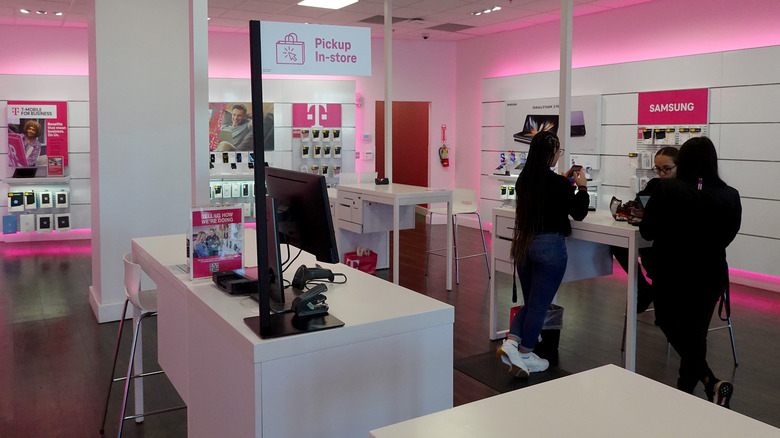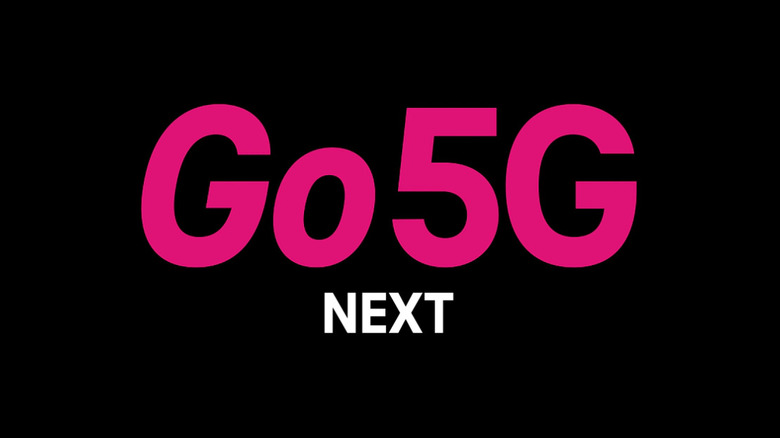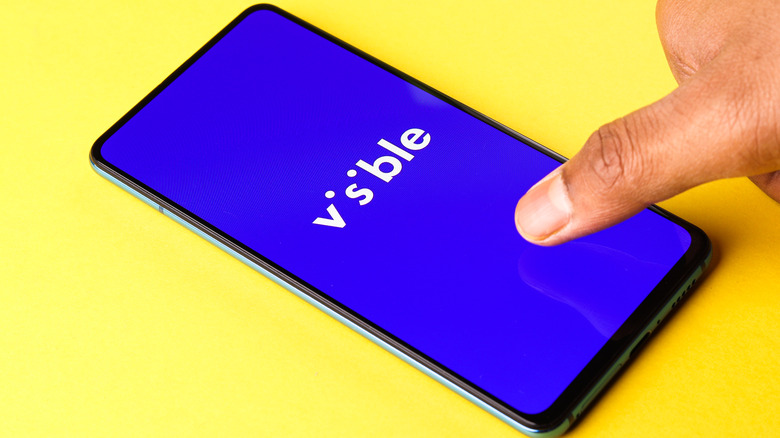How Much Do T-Mobile's One-Line Plans Cost & Are They Worth It?
In January 2017, T-Mobile changed the game for mobile phone service carriers in a way that decisively made it stand out and live up to its self-imposed "Un-carrier" nickname. That was the announcement that, going forward, the T-Mobile ONE plan would be advertised using a bottom-line price that included all applicable taxes and regulatory fees. This also applies to the Magenta and Go5G plans that replaced ONE, with the T-Mobile Essentials plans being the only postpaid ones not bundling in the taxes and fees. Magenta and Go5G are really attractive if you want the bundled streaming services, but much less so if you don't.
While pricing became more transparent than the competition, one thing didn't change about T-Mobile's pricing, an issue that the other carriers share: That the best prices per line are, by far, for family plans. If you just need a single line, you can expect to pay a lot more. For someone who's looking for a new plan for themselves and only themselves, it's a complicating factor, one that can drive them to other carriers and potentially cheaper prepaid plans. Let's take a look at how T-Mobile's solo plans compare to the competition and examine whether it's worth paying full price for them or if most people would be better off elsewhere. Depending on what you're looking for and especially how much mobile data you use, the answer may lie in T-Mobile's prepaid subsidiaries or, if you're fine with switching networks, prepaid services riding Verizon's towers.
What are T-Mobile's current plans?
T-Mobile's postpaid tiers, which all bundle streaming services, are pretty expensive. Assuming you're getting the $5 auto-pay discount, monthly line fees minus taxes and fees are $50 for Essentials Saver, $60 for Essentials, $70 for Magenta, $75 for Go5G, $85 for Magenta MAX, $90 for Go5G Plus, and $100 for Go5G Next. Alternatively, there's prepaid service.
T-Mobile-branded prepaid plans have the same tower priority as postpaid plans, so they're arguably better deals than postpaid. "Unlimited" plans run from $50 to $60 plus taxes and fees per month, and there's also a 10GB plan for $40. T-Mobile also has various prepaid subsidiaries, but according to research from YouTuber Stetson Doggett that he also published on Reddit, they have the same data priority as third-party providers on T-Mobile's network, making them a lower tier of service than T-Mobile-branded prepaid.
Metro by T-Mobile's sticker prices include taxes and fees and top out at $60 per month for unlimited data and 25GB of hotspot data. T-Mobile also owns Ultra Mobile, which tops out at $49 plus taxes and fees per month for unlimited high-speed data. Mint Mobile, T-Mobile's newest acquisition, has more complicated pricing based on pre-paying for months at a time, but tops out at $40 plus taxes and fees per month for unlimited high-speed data.
How does this compare to AT&T and Verizon?
Thanks to T-Mobile's 2018 merger with Sprint, it now has just two direct competitors: AT&T and Verizon. Making a direct comparison is easier said than done because neither has followed T-Mobile's lead as far as bundling taxes and fees into the sticker price.
On Verizon, the plans currently listed as being available are heavily customizable to the point of being confusing. If you get the $10 per month auto-pay/paperless billing discount and choose not to bundle the optional streaming services on offer, then your choices are Unlimited Welcome for $65 plus taxes and fees per month, Unlimited Plus for $80 plus taxes and fees per month, and Unlimited Ultimate for $90 plus taxes and fees per month. With AT&T, if you go with auto-pay and paperless billing, you can choose from Unlimited Starter SL for $65.99 plus taxes and fees per month, Unlimited Extra for $75.99 plus taxes and fees per month, or Unlimited Premium PL for $85.99 plus taxes and fees per month.
Even though a direct comparison is difficult, you can definitely see the appeal of T-Mobile over its rivals. At $70 for the lowest-positioned of the non-"Essentials" plans, Magenta, you not only have taxes and fees included, but also Netflix and Apple TV+, which positions it as a better value than the similarly situated AT&T and Verizon plans. The same goes as you work your way up, too. But what if you aren't married to traditional post-paid service?
What about third-party MVNOs?
Mobile Virtual Network Operators (MVNOs), which lease space from the postpaid carriers' networks, are numerous, so we'll stick with some of the most well-known and popular ones. (Our recent list of T-Mobile alternatives is a good jumping-off point.) Perhaps most appealing for data gobblers, is Verizon-owned Visible: Its two plans, Visible for $25 per month and Visible+ for $45 per month, are distinguished in large part by the latter adding Verizon's Ultra Wideband 5G service, 50GB per month of "premium data" (defined by Visible as "no data slowdowns due to prioritization"). That makes it the rare prepaid choice that's as good as postpaid.
Technically speaking, Visible isn't the only Verizon MVNO with priority/premium data, though. According to BestPhonePlans.net, U.S. Mobile and Xfinity Mobile also have priority over their competitors, and there are no comparable MVNOs on the T-Mobile or AT&T networks. The latter is only available to Xfinity broadband customers, while U.S. Mobile is open to anyone and includes priority data for anyone who activates with a 5G phone on their $29 (taxes and fees included) Unlimited Starter plan or higher.
Elsewhere on our T-Mobile alternatives list is Tello, which rides T-Mobile's network. It bundles regulatory fees into its advertised prices but not sales tax. It has attractively low prices with a variety of options that let you to mix and match various voice plans and different data allotments, starting around $10 plus tax per month for 2GB, with "unlimited" data starting at $25 plus tax.



